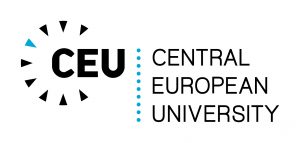Professor Marek Kwiek’s Keynote Speech at the 5th CEHEC Conference at CEU/Corvinus University in Budapest: the 5th “Central European Higher Education Cooperation Conference” (April 12, 2019) is available from YouTube here.
The title of the Keynote Speech is „The Deeply Divided Academic Profession, or Multi-Level Policy Implications of Social Stratification in Higher Education”.
„The Deeply Divided Academic Profession – Multi-Level Policy Implications of Social Stratification in Higher Education” Keynote Speech held by Marek KWIEK, Professor and Director of the Center for Public Policy Studies, University of Poznan, Poland at the 5th Central European Higher Education Cooperation (CEHEC) Conference on 11-12 April, 2019, organized by the Center for International Higher Education Research (Corvinus University of Budapest) and the Yehuda Elkana Center for Higher Education (Central European University).
About the presentation
The academic profession is heavily internally divided: increasing vertical stratification of institutions and scientists is reshaping national systems. The study that represent the central theme of this keynote address views research as a powerful academic game: not inclusive and not democratic. Research is viewed as prestige-driven, internationally competitive, at the heart of academic recognition and reward systems – and as the single most stratifying factor in the higher education enterprise. Therefore, the underpinning of the stratification system in higher education is contribution to knowledge through published research. The notion of social stratification in higher education allows for a better understanding of the changing academic profession than a number of competing notions (such as globalization, managerialism, financial austerity, or commodification). A sample of European academic scientists (N = 8,466 individual cases) from 11 countries is used and the characteristics of the three distinct classes of academic scientists are analyzed: highly productive academics (“research top performers”), highly paid academics (“academic top earners”), and highly internationalized academics (”internationalists” in research). Policy implications are explored at individual, institutional and national levels – and specifically for CEEs.
About the conference
In 2014, CEHEC launched a new series of annual conferences co-hosted by the Center of International Higher Education Studies (CIHES) at the Corvinus University of Budapest and the Yehuda Elkana Center for Higher Education at Central European University (CEU), in collaboration with partners from the Czech Republic, Poland and Slovakia. Each conference in this series brings together researchers, policy makers, university leaders and other experts in higher education from Central and Eastern European (CEE) region and from other parts of the world. The main aim is to stimulate scholarly and professional dialogue on current trends and key issues in the region’s higher education, as well as promote enhanced collaboration and experience sharing in higher education and science policies.





